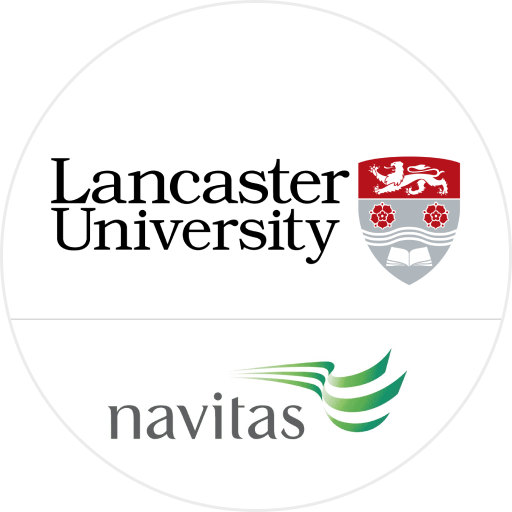• IELTS
Articles (A/An/The) for IELTS: Using Articles for IELTS Grammar
4897 Reads
3 min Read
Grammar acts as the foundation of a language. Articles (a, an, the) are words used before nouns. Understanding which article to use and when to use it is crucial. Read the blog to learn and master the use of articles for IELTS grammar and score high.
Table of Contents
A strong grasp of grammar is essential for taking the IELTS test. There is no part of the IELTS exam that directly tests and focuses on grammar. However, proper use of grammatical words plays a vital role. It is necessary to use correct articles for IELTS grammar to get a high band score. Articles showcase the essential characteristics of nouns they are used with. Students often make mistakes with the use of articles, but it is not as hard as one might think.
Articles and Their Types
Articles are words that are used to identify a noun as being specific or unspecific. There are two types of articles-
• Definite
• Indefinite
The definite article (the) is used before a noun to indicate that the identity of the noun is known to the reader. The indefinite article (a, an) is used before a noun that is general or when the identity is not known. There are also certain situations in which articles are not used before a noun. Articles determine if a noun is countable or uncountable or used precisely. It can change the entire meaning of the sentence.
For Example: A cup of tea in the morning can refresh one's mind.
Here 'a' signifies a general cup of tea, while 'the' specifies a particular cup on that day.
Importance of Articles for IELTS Grammar
It is often a challenging task for candidates appearing for the IELTS test to use definite or indefinite articles, especially in the writing module. Articles are frequently used in almost every line of writing or speaking section. The errors in grammar can bring major differences in the sentence's meaning or damage the whole paragraph. Proficiency in using articles reduces the chance of grammatical errors in the exam. Students should make sure to use the articles as required to make the conversation look more professional. Articles for IELTS grammar are essential to reduce grammatical mistakes and include articles in every sentence.
Articles with Nouns
A noun is a word that refers to a thing, a person, an animal, a place, or an action. Most of the sentences during the IELTS test consist of at least one noun. It is often preceded by an article or, at times, by an adjective. The uncountable noun is impossible to count and is always singular. Articles ‘a' and 'an' cannot be used with an uncountable noun. The uncountable nouns can include intangible concepts (like information, and wealth), collections like jewellery or equipment, and homogeneous substances like air, water etc. These nouns cannot be counted individually. The uncountable nouns can be modified by indefinite adjectives like 'some'.
Use of Articles with Noun Phrases
Noun phrases are a combination of article+adjective+noun, and the use of an article depends upon the adjective that follows it.
There are certain exceptional conditions that candidates must remember while using articles for IELTS grammar, wherein nouns take the definite article 'the'. For instance, if an object or collection of things is unique or considered to be unique, the article 'the' is preferred.
When referring to historical monuments, the article 'the' is used before their names to highlight their uniqueness.
In the case of holy books, the article 'the' is consistently used since each religion possesses its own distinct sacred text. Examples include 'the Gita,' 'the Bible,' etc.
The definite article 'the' is used before natural features such as deserts, rivers, hills, forests, and oceans.
Certain countries are also preceded by the article 'the,' such as 'the United States of America,' 'the United Kingdom,' and 'the United Arab Emirates.
Articles with Pronouns
Candidates appearing for IELTS should keep in mind that articles should not be used with pronouns. This rule is followed as the use of both a possessive pronoun and an article can confuse the examiner during the IELTS test.
Basic rules of Articles (A/An/The)
Candidates should have a thorough knowledge of the basic rules of articles for IELTS grammar. Some of the important rules are as follows:
1. Do not use 'A' and 'An' with an uncountable noun. These articles can be used with singular countable nouns.
2. Do not use 'some' and 'any' with singular countable nouns. Only use them with plural countable nouns.
3. The uncountable noun is always singular. Don't use 'a' and 'an' with an uncountable noun.
4. Articles are also used before adjectives
5. The articles show whether both the speaker and the listener are familiar with something or not
6. Possessive adjectives (her, my, their) don't need articles
Some advanced rules for using Articles
1.The article 'The' is used for:
• Entertainment- We went to the cinemaTransport- I arrived at the station
• Musical instruments- I play the sitar
• Common places- She went to the bank
• Rives, mountain ranges, oceans and seas- The Himalayas
2.No article is used for:
• Most time expressions: I will visit next week
• Meals: She had breakfast
• Work, Home, Bed: Priya went to bed
• Proper nouns (Name, places): I will talk to Neha
3.Idioms don't follow any rules. Candidates must memorize the full idiom as an expression, such as 'off the record' or 'in a hurry'.
Practical examples of the important article use
If a candidate wants to use articles for IELTS Grammar confidently, they should spend enough time understanding its uses.
Use "travel", not "a travel".
But one can use "a journey/ a trip."
Work is uncountable, but the job is a countable noun. Therefore, applicants can use a/an with the word job, not with the word work.
Use the article ' the ' if a student wants to indicate something specific. As in:
She is working on a table. (on one of the many tables in the room, not a specific table.)
He is working on the computer next to the door. (Not any computer but a specific computer that is next to the door).
Overall, if a candidate speaks about something specific, they must use the.
If you say, I'm going to a bank (any bank)
If you say, I'm going to the bank (that means you are implying a specific bank, maybe the bank where you always go or maybe the bank that you just mentioned a little while ago.)
Students must use 'the' before anything unique. For example: The capital of a country, the earth, the moon, the sun, the sky, the universe, the equator etc.
If a candidate uses an adjective to talk about a group of people, use 'the' before that adjective. For example: The unemployed, the homeless, the sick, the injured, the rich, the poor, the elderly, and the old etc.
Conclusion:
IELTS candidates are strongly advised to use articles for IELTS Grammar effectively. Candidates should engage in activities such as reading and listening to English speakers. They can enhance their preparation by watching English TV channels, news programs with subtitles, and listening to podcasts. An effective technique, "active listening," involves pausing English movies to speak out entire sentences where articles are used. Engaging in this activity daily can be beneficial. Additionally, candidates are encouraged to observe how definite and indefinite articles are utilized in newspaper articles, stories, magazines, and novels. By following these strategies, candidates can improve their skills in using articles for IELTS and significantly enhance their chances of achieving a high band score.
FAQ
Get great articles direct to your inbox
The latest news, articles, and resources, sent straight to your inbox every month.
Popular Universities to Study Abroad
World class education waiting for you.

Heriot-Watt University - Orkney Campus
Scotland, UK • 3 Programmes
Tuition Fee : GBP 15000-21000 / year

Deakin University - Geelong Waterfront Campus
Victoria, Australia • 31 Programmes
Tuition Fee : AUD 33000-43000 / year

Shorelight Group - University of Central Florida
Florida, USA • 105 Programmes
Tuition Fee : USD 17000-0 / year

University of New Brunswick - Fredericton Campus
New Brunswick, Canada • 81 Programmes
Tuition Fee : CAD 18000-22500 / year

Navitas Group - Lancaster University - Leipzig Campus
Saxony, Germany • 29 Programmes
Tuition Fee : EUR 17250-22000 / year

Kaplan Group - University of Alberta - Augustana Campus
Alberta, Canada • 12 Programmes
Tuition Fee : CAD 31000-40500 / year
.png)
Popular English Language Proficiency Exams
IELTS Online
- Live Classes
Blogs and Articles
Curated content to keep you updated on the latest education trends, news and more.
Updated on • Jul 17,2025 05:33 PM IST • USA
PTE Accepted Universities in Australia
Updated on • Jul 17,2025 05:09 PM IST • PTE
Part-Time Jobs for International Students in Australia
Updated on • Jul 17,2025 03:44 PM IST • Australia
Updated on • Jul 12,2025 04:02 PM IST • USA
Updated on • Jul 11,2025 11:32 AM IST • Education
CPT vs OPT: Meaning, Difference, and How to Apply
Updated on • Jul 11,2025 10:40 AM IST • USA
Masters in Computer Science in UK: Top Colleges, Eligibility, Scholarships
Updated on • Jul 10,2025 11:29 AM IST • study in the UK
Highest Paying Jobs in the World
Updated on • Jul 08,2025 01:40 PM IST • Study Abroad
MBA in Australia for Indian Students: Best Universities, Requirements, Scholarship, Courses, Jobs
Updated on • Jul 08,2025 01:35 PM IST • Australia
Canada vs Australia: Which Country is Better for Indian Students in 2025?
Updated on • Jul 07,2025 12:46 PM IST • Education
France vs Germany: Which Is Better for International Students?
Updated on • Jun 30,2025 05:15 PM IST • Education
Top 10 Agricultural Universities in USA
Updated on • Jun 27,2025 05:25 PM IST • USA
Most In-Demand Future Careers in 2025
Updated on • Jun 26,2025 04:41 PM IST • Education
How Much Do Nurses Make in the U.S.?
Updated on • Jun 23,2025 03:59 PM IST • USA
Updated on • Jun 21,2025 02:00 PM IST • USA
MBA in UK: Universities, Eligibility, Types, and Career Opportunities
Updated on • Jun 19,2025 04:09 PM IST • UK • study in the UK
Scholarships in France for Indian Students
Updated on • May 29,2025 05:22 PM IST • France
Intakes in Dubai for Indian Students
Updated on • May 27,2025 03:34 PM IST • Study in Dubai
France Student Visa 2025 – Requirements, Fees, Checklist & Application Process
Updated on • May 23,2025 03:36 PM IST • France
MBA in France for Indian Students in 2025
Updated on • May 22,2025 05:35 PM IST • France
Related Blogs and Articles
A little effort to provide an authentic and reliable content for keen readers!!
Updated on • 11-04-2025 • IELTS
Describe Your Hometown IELTS Speaking Part 1 Topic
Updated on • 07-04-2025 • IELTS
PTE vs IELTS : Know the Difference and Which is Easier?
Updated on • 21-03-2025 • IELTS
IELTS Exam Dates 2025 in India
Updated on • 18-01-2025 • IELTS
IELTS Reading Practice Tests 2025: Reading Passage and Sample Questions
Updated on • 15-01-2025 • IELTS
IELTS Letter Writing Topics 2025
Updated on • 15-01-2025 • IELTS
Canada IELTS band requirements 2025
Updated on • 10-01-2025 • IELTS
Updated on • 25-11-2024 • IELTS
Updated on • 21-11-2024 • IELTS
Updated on • 02-11-2024 • IELTS
Linking Words for IELTS Speaking - Word List & Tips
Updated on • 25-10-2024 • IELTS
IELTS Writing Task 2 - Academic and General Topics with Sample Answer
Updated on • 25-10-2024 • IELTS
IELTS Writing Task 2: Tips, Lessons & Models
Updated on • 25-10-2024 • IELTS
IELTS Test Report Form (TRF): Number, Tracking, Validity and Sample
Updated on • 25-10-2024 • IELTS
IELTS Speaking Samples and Answers
Updated on • 25-10-2024 • IELTS
Updated on • 25-10-2024 • IELTS
Updated on • 25-10-2024 • IELTS
IELTS Sample Charts for Writing Task 1 Practice
Updated on • 25-10-2024 • IELTS
IELTS GT Writing Task 1/ IELTS Letter Writing
Updated on • 25-10-2024 • IELTS
Updated on • 25-10-2024 • IELTS















